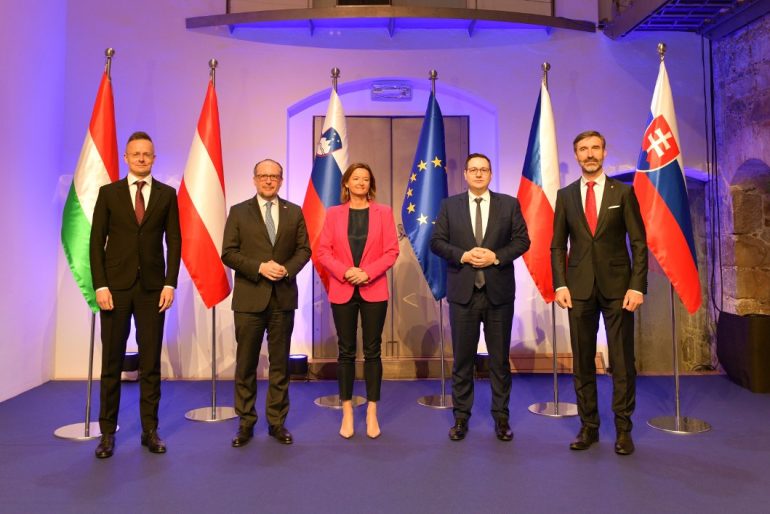The Foreign ministers of countries of the Central Five (C5) group yesterday agreed to support the enlargement of the European Union to include the Western Balkan countries, they announced at a press conference following talks.
The ministers from Austria, the Czech Republic, Hungary, Slovakia and Slovenia also said they appreciated that the EU summit last week decided to open accession talks with Bosnia and Herzegovina.
Hungarian Foreign Minister Peter Szijjarto said that moving forward and accelerating the EU enlargement process will be one of the key priorities of the Hungarian EU Presidency in the second half of this year. The Central European countries have a significant responsibility because they support the accession of the Western Balkan countries to the EU both publicly and sincerely, he said.
If there had been genuine support for EU enlargement throughout the EU, the five Balkan states would not have been waiting for accession for a total of 74 years, an average of 14 years and 10 months, Szijjarto said. He said enlargement would give the bloc a certain freshness.
According to Czech Foreign Minister Jan Lipavsky, it is also important that Central European countries participate in the matter and help the candidate countries with their accession efforts. In addition to the Balkan countries, he also mentioned Ukraine and Moldova. “It’s about raising the issue repeatedly, creating political pressure, because this is a complicated issue,” he told Czech journalists later.
Slovak Foreign Minister Juraj Blanar stressed his support for EU enlargement to include the Western Balkan countries, but said that any institutional reforms of the bloc must not include the abolition of the veto rights of individual states on certain issues.
“Ukraine is something else. Ukraine is at war and we have to take that into account. But we think the prospect of Ukraine becoming an EU member (in the future) is better than nothing,” Blanar added. He said Ukraine’s EU accession process would take a long time. Slovakia supports Ukraine as a democratic and sovereign country, but will not provide it with any military hardware, Blanar said, reiterating his country’s position.
Szijjarto, Lipavsky, Blanar, and the Slovenian and Austrian foreign ministers Tanja Fajon and Alexander Schallenberg, were joined by Montenegro’s Foreign Minister Djordje Radulovic for a working lunch. Together they discussed support for the Western Balkan countries on their path to the EU.
The C5 ministers also discussed the war in Ukraine, economic policies, agriculture and migration. “There is a consensus in the countries of the Central European region that illegal migration is a serious phenomenon. That we have to tackle it together, that Schengen is under great pressure,” Lipavsky told Czech journalists. The situation can never be resolved at the level of national states, but at the European level, he said. Szijjarto said preventing illegal migration to the EU would be another priority of the Hungarian EU presidency.







